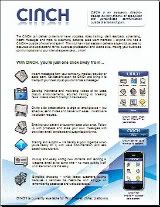A Response to the Scam Claims Occasionally, we get questions from people who read negative comments posted on a couple of Internet sites. These sites allegedly report “scams”, but their real business is delivering advertising to people who visit their site. Their strategy is to post defamatory comments that create controversy and elicit responses (thus driving traffic to the site and boosting ad revenue). The comments they post are consistently inaccurate, irrelevant, out of context, and/or completely fabricated. If you read through all of the comments, they subsequently retract most of their claims (but they rarely remove the original comments, because inflammatory comments drive more traffic than retractions). So, to paraphrase Mark Twain, the problem is not what people know; the problem is what they know that “just ain’t so.” As Business Associates, most of you already have enough facts and first-hand experience with DubLi to discredit the postings on these sites as things that “just ain’t so.” But for those of you who are new, and for those who are seriously considering the opportunity, here are some facts that should help. First, you need to understand DubLi’s business model, because without that understanding, it will be difficult to evaluate the comments in context. However, before we get to the business model......a little history. DubLi History The programmers spent the next several months debugging the Dubli Auction site and went live in January 2008 in 28 countries in Europe. In their first 8 months of operation in Europe Dubli acquired 2.3 million customers, and now, according to the corporate web site, have a customer to associate ratio of 72 to 1. After operating for nearly 16 months in Europe, the unique bid auction is by far the most popular auction with a nearly 4 million customer base. Dubli officially launched in North American on April 4th 2009, and just announced that the reverse auctions will be operating on a Global Basis beginning in April, 2010. DubLi Business Model Most people look at dubli.com and think it’s an auction site, in business to sell auction items to customers. This is not really the case. DubLi’s auctions are a strategic “means to an end”, a “hook”, and only a small part of the revenue model. DubLi.com is an early stage shopping portal with the goal of becoming the largest shopping portal, globally. IN addition, DubLi.com has arrangements with major retailers for click-through fees and revenue-share fees. Aggregating online shoppers for click-through fees and revenue-share fees is an established, multi-billion-dollar industry, led by companies like Google, Amazon and eBay. The most successful shopping portals have “hooks” to draw traffic to their site. Google’s hook is search; Amazon’s has always been books; eBay’s is auctions. DubLi’s hook is reverse auctions and shopping games (entertainment shopping). DubLi uses reverse auctions and games to drive traffic to dubli.com. In an eBay auction, the seller is charged the auction fee. In a DubLi auction, the bidder is charged the fee with each bid, in the form of a DubLi “credit” that costs 80¢. This auction fee covers DubLi’s cost of acquiring the customer and running the auctions and games, and it also covers the cost of reducing the auction price of the product by 25¢ with each bid, which makes the auctions exciting and drives traffic. In exchange for the 80¢ fee, the customer gets access to discounted prices at dubli.com (in the same way that a Costco member gets access to discounted prices at Costco stores in exchange for the membership fee). The DubLi customer also gets “entertainment” value in watching the price drop, which is critical to the viral growth of the customer base. In addition, when DubLi.com launches globally in 2010, the bidding will become frantic as thousands of bidders all bit at the same time, thus dropping the price dramatically in a very short period of time. DubLi’s strategic focus is on expanding its customer base, because the value of any shopping portal business is directly related to the size of its customer base. DubLi uses a traditional network marketing distribution model to launch its initial customer base in new markets, both because DubLi’s founder has had successful experience in network marketing, and because a network model can create large, loyal, initial customer bases faster and cheaper than advertising-based models. What DubLi gets with its network marketing model is initial customers fast and cheap (without having to raise millions of dollars for each new market launch); what DubLi gives up is a cut of its revenue stream, paid out in commissions to its Business Associates for the life of their customers. DubLi’s Business Associates are paid commission to create new customer bases and to sponsor new Business Associates (who, in turn, create more new customer bases). Commissions are paid to Associates whenever their registered customers buy credits to participate in dubli.com auctions or whenever their customers generate click-through or revenue-share fees by clicking through to DubLi’s search engine partner. In order to create a new customer base, Business Associates buy DubLi credits in bulk (called “Product Packages”), and then give away the credits to prospective customers to get them to visit the site and try out the auctions. When a new Business Associate buys a Product Package, commission is paid to the recruiting Business Associate, just as if a customer had bought the credits (and that is how Business Associates earn commission from recruiting new Business Associates). DubLi Scam Responses Here are the negative comments that are posted on the Internet (in italics), followed by the facts, along with some answers to frequently asked questions:
Bottom line, DubLi is a complex business that combines a customer-focused shopping portal with a network marketing distribution model. That combination gives Business Associates the rare opportunity to earn an ongoing cut of the revenue stream in an emerging Internet company; a benefit that is normally available only to equity holders and venture investors. Now, get this......this is only the beginning. Not even the shopping portal is DubLi's ultimate goal. DubLi is looking to change the buying habits of the global online market place. Something that I haven't even mentioned yet is a piece of propriety software called the "Cinch" that has been created for the PC is now being redeveloped for the smart phone. This will allow two-way communication between the shopper and the merchant that will bypass all the email issues. It will allow for "Targeted" messages to shoppers who are truly interested with TRMENDOUS value for all involved: 1) the Customer, 2) the DubLi Distributors, 3) the Merchant, 4) Dubli.com. This becomes a true WIN, WIN, WIN, WIN scenario. This is only the beginning. Will you be COMING ALONG for the RIDE? As for comments posted on the Internet about DubLi, please consider the source (and the source’s underlying motivation) before you attribute any credibility to the comment. Also, if you read something not covered here that appears to raise a red flag, please ask about it . . . you’ll find that, most often, it “just ain’t so.” They have no clue what Dubli is doing, or where DubLi is going. |
Monday, February 8, 2010
Is DubLi a Scam??
Author: DubLiMan
| Posted at: 9:44 PM |
Filed Under:
DubLi Business Model,
DubLi History,
Is DubLi a Scam,
Scam

Subscribe to:
Post Comments (Atom)














0 comments:
Post a Comment